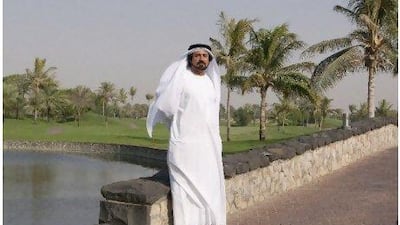DUBAI // The future of golf in the region hinges on the success of Mena Golf Tour players, according to Mohamed Juma Buamaim, the tour's chairman.
The second season of the tour, introduced last year by the Sheikh Maktoum Golf Federation, begins today at the Dubai Creek Golf & Yacht Club with more than 400 entrants, including 100-plus amateurs, registering to compete during the six-event tournament.
With 23 players, Morocco leads a large contingent of representatives from the Middle East and North Africa, while Ahmed Al Musharrekh, the Emirati golfer who earlier this month turned professional, and the amateur Saif Thabet represent the UAE, along with several club professionals. Golfers of 41 nationalities will compete for the combined prize fund of US$325,000 (Dh1.2 million) and four places at the 2013 Dubai Desert Classic. The top three professionals receive an invitation to the European Tour event, with the final slot going to the top amateur.
Such has been the response to this year's tournament that organisers had to increase the starting field for the opening event from 100 to 120, with amateurs comprising 25 per cent of the line-up.
Stephen Dodd and Zane Scotland, players with European Tour experience, and Jake Shepherd, last year's winner of the professional Order of Merit, are expected to feature strongly this season.
Buamaim, however, has called for Mena-born golfers to challenge for honours and inspire a new generation of regional stars.
"For me, the whole idea behind the tour is to have amateurs from this part of the world try and develop. They are the ones who will encourage more people to take up golf, not the [Tiger] Woods and [Lee] Westwoods," Buamaim said.
"We're aiming to have Arab names or Middle Eastern-sounding names become household stars because hopefully that will bring other golfers through.
"These things don't happen overnight, it'll take a long time. We want to encourage our players to turn professional, but not rush them.
"We want to see them first doing well in amateur tournaments worldwide, and hope that encourages more nationals to take up the game and at the right age.
"It's important how many Mena players we have and how well they do. If we keep seeing in the press an Ahmed Marjan [the Moroccan who topped last season's amateurs], or an Al Musharrekh, people will take notice. It's the only way."
Buamaim attributes the early success of the Mena Tour to its ability to provide a competitive platform for players testing their talents outside their usual environment.
He cites the strides Moroccan golf has made since the introduction of its Hassan Trophy, a European Tour event, in 1971 - Moroccans made up the top three amateurs in last year's Mena Tour - yet Buamaim believes the development of the game there will accelerate now that their players face a fresh challenge.
"From the first time I saw Moroccan golfers until now, it's almost the same professionals on their tour. That's not a good sign," he said. "There should have been kids coming through.
"Their national federation was doing a great job, spending a lot of money on fantastic facilities and programmes, but they were doing that solely among themselves; there was no competition.
"We wanted to show that in golf, when you play on the same turf with the same people, it's easy to be a leader. But when you come play the Mena Tour you're changing your course, your attitude, talking to people in a different language and experiencing different cultures and customs. All that adds to the pressure. You need to learn how to control these things if you're going to develop and that's what the Mena Tour will hopefully give the Moroccans, who are very, very good. It will take them to the next step."
For Buamaim, the addition of two extra events - the tour moves outside the UAE for the first time with next month's Dirab Golf and Country Club Open in Saudi Arabia - and the inaugural tournament's television figures - highlights were beamed into 392 million homes worldwide - proves the initiative will be a success for years to come.
"I just want it to be a good tour, encourage more people to play golf and bring out the best in this region," Buamaim said. "It's not commercial, it's self-funded. We don't take money from anybody except sponsors.
"We can only try. I have no problem at all if it doesn't work, as long as we tried. If it doesn't, it doesn't. But I know it will."
Follow us


